Ferguson shipyard bosses blamed for ferries fiasco
- Published
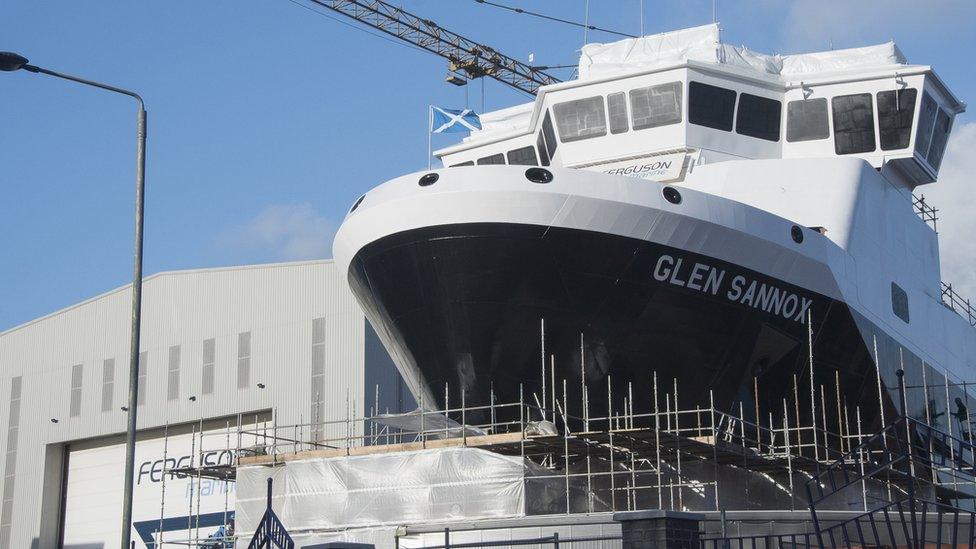
Bosses at Ferguson shipyard were to blame for the delay and spiralling cost of two new CalMac ferries, according to the chief executive of the government agency which placed the orders.
Kevin Hobbs, of CMAL, also rejected calls for the unfinished ferries to be scrapped and the work started again.
The vessels are £100m over budget and likely to be three years overdue.
Jim McColl, the former chairman of the Inverclyde shipyard, has previously blamed CMAL for the fiasco.
He was in charge of the shipyard before it collapsed in August last year but his accusations have been rejected by Mr Hobbs in a new BBC interview.
Mr Hobbs said Ferguson's senior management were "fairly and squarely" to blame and he addressed a series of claims he described as "urban myths".
It is the latest in a series of claims and counter-claims in the saga, which is having repercussions on islanders dependent on lifeline ferry services.
What's the background?
Ferguson shipyard won the £97m contract to build two new ferries for Arran and the Hebrides in 2015.
The ships were to be a new hybrid design - powered by marine diesel oil and liquefied natural gas - but construction fell way behind schedule.
The Glen Sannox - destined for the Arran route - was expected to enter service in mid-2018 but it remains moored at the yard.
A second ferry, earmarked for the Skye, Harris and North Uist route, is not expected to enter service until summer 2022.
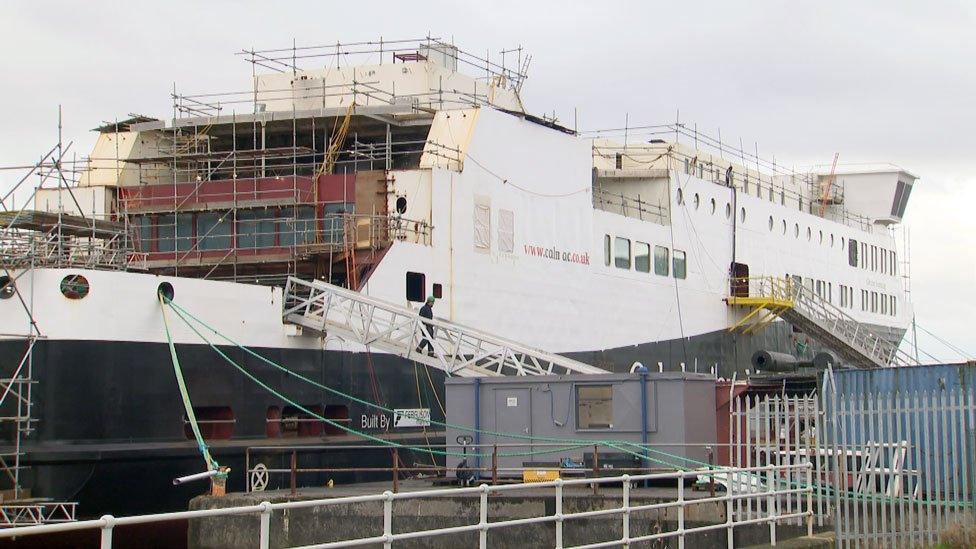
Last summer the yard collapsed owing more than £49m to the Scottish government, and it was eventually taken into public ownership.
It has led to a war of words between Jim McColl, the Scottish government and, now, CMAL.
In December, Scottish Finance Secretary Derek Mackay revealed that the final bill for the two ships was likely to be close to £200m.
Management of the yard was sharply criticised in a Scottish government report, external branded "outrageous" by Mr McColl.
In a BBC interview, he criticised the role of the government and CMAL in the fiasco, and he said the ferries should be scrapped and the work started again.
What is CMAL saying?
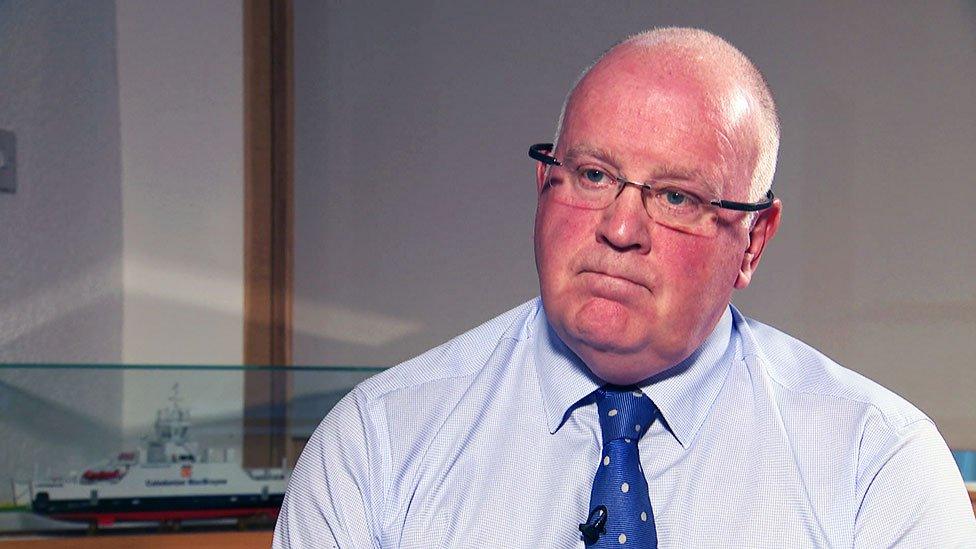
Kevin Hobbs rejected calls for the unfinished ferries to be scrapped
Caledonian Maritime Assets Ltd (CMAL) owns Scotland's ferries, ports and harbours and it was responsible for the procurement process which led to Ferguson Marine winning the contract to design and build the CalMac vessels.
Kevin Hobbs, its chief executive, told BBC Scotland that Ferguson's senior management team was "fairly and squarely" to blame for the problems which have left the project overdue and over budget.
He also addressed some of the claims made by Mr McColl in previous interviews, describing them as "urban myths".
It is the first time dual-fuel ferries have been built in the UK but Mr Hobbs said it was incorrect to describe them as "prototypes".
Similar vessels have been built in Poland and Germany since they first came on to the market in 2003, and the engine manufacturer has delivered more than 2,000 of these engine types, he said.
Mr Hobbs also rejected claims that CMAL had made "hundreds if not thousands" of design changes.
"That simply did not happen," he said.
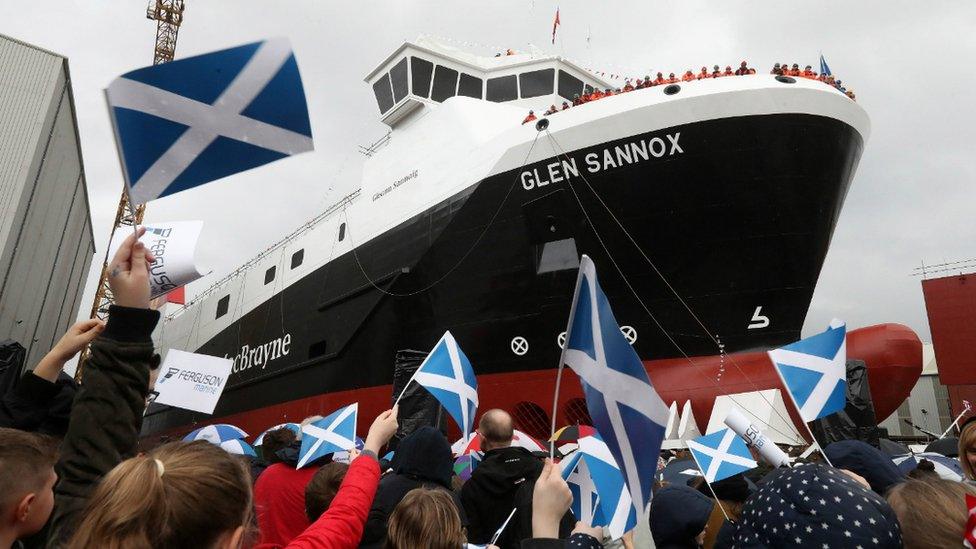
Ferguson won a contract to design and build the ship, but he claimed it started building the ship before the design stage was finished.
"Very simply, the design was still going on when the steel cutting was happening and effectively the shipyard was designing the vessel and building the vessel at risk, and that was a fundamental flaw," he said.
Mr Hobbs said a £66m compensation claim against CMAL by Ferguson in December 2018 was "basically a work of fiction".
"We refuted that in its entirety and in my career I have never, ever seen that happen before," he said.
Ferguson Marine is based just a few hundred yards from CMAL's office in Port Glasgow but Mr Hobbs insisted the firm won the tender fairly.
He said CMAL knew the people on the shop floor were capable of delivering ships and it was "totally incorrect" that the project should be scrapped and begun again.
And he added that the agency was "desperately upset and desperately concerned" that the ferries are not operating for the island communities.
What effect is it having on islanders?
Local residents on Arran believe ferry disruption is getting worse
The aging fleet of CalMac ferries - their average age is 22 years old - is affecting many islanders in Scotland.
On Arran, where the ferry is 34-years-old, residents have told BBC Scotland that cancellations and disruption are becoming more common.
Scottish government figures, external show there were 328 cancellations on the Ardrossan-Brodick route in 2017-18, up from 252 the previous year.
John Baraclough said he had to travel to the mainland for 14 different appointments when he was being treated for cancer.
"For eight of those appointments I had to stay overnight because the ferries were cancelled," he said.
"When you've got cancer you really are under quite a lot of stress anyway and the additional disruption of the ferries - meaning that you have to stay overnight - just adds to that stress."
Hotelier Barbara Crawford said the ferries affected every part of the business.
"The boats were very rarely cancelled before," she said. "It feels like every week we get a cancellation. It's going to put people off coming to Arran, unfortunately."
Mr Hobbs said he wanted to see six major vessels and eight to 10 smaller vessels built for the CalMac fleet over the next decade, a move that would require an investment of about £500m.
- Published5 February 2020
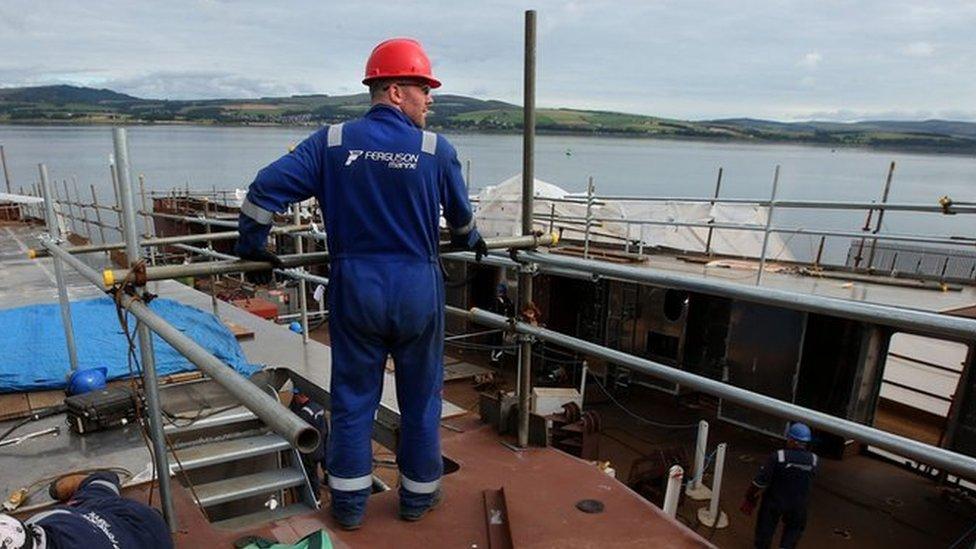
- Published20 December 2019
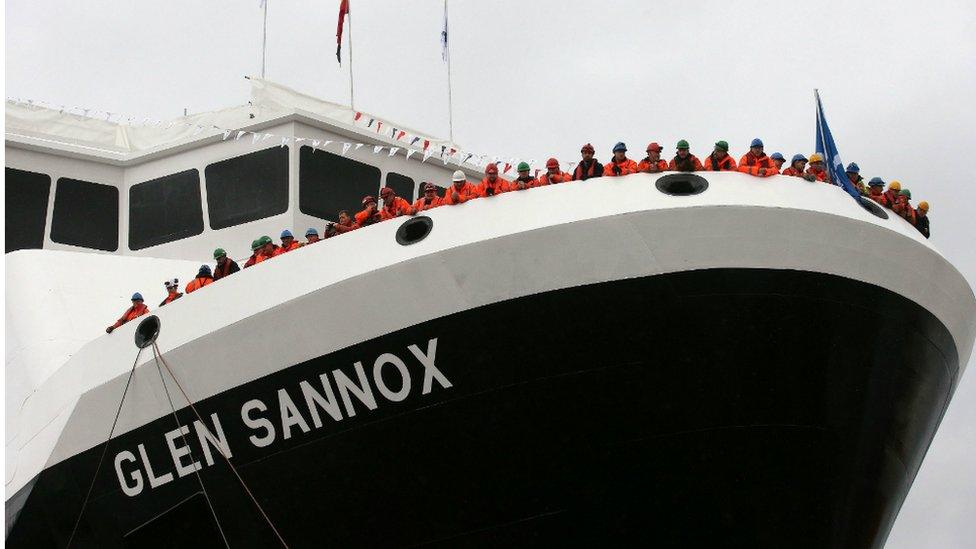
- Published23 March 2022
